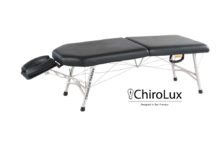by
Holistic healers, on the other hand, believe in the body’s ability to heal itself. They seek to support this process through natural means, such as removing blockages and restoring balance to create optimal healing conditions. They strive to treat the underlying causes of illness, rather than the symptoms.
If you’re interested in holistic healing, you’re not alone. As consumers and healthcare practitioners alike become jaded about the profit-hungry pharmaceutical industry, they’re increasingly turning to holistic medicine for the cure to what ails them. More than a third of Americans use a form of alternative medicine such as chiropractic care, and about 3 billion people worldwide rely on holistic medicine as their primary form of healthcare.
Many students who pursue a doctor of chiropractic degree arrive at the profession out of an interest in holistic healing. As an integrative and widespread practice, it bridges the gap between traditional medicine and less mainstream forms of alternative healing. Chiropractors themselves often incorporate other holistic approaches, such as nutrition or homeopathy, while others choose to partner with fellow healers to establish centers for holistic medicine.
The Holistic Heart of Chiropractic Care
Although it’s grounded in scientific research, chiropractic is as much a philosophy as it is a science. It emphasizes the body’s innate intelligence and aims to sustain optimal health through preventive care.
Chiropractic techniques stem from the understanding that “our bodies are in a continuous state of healing” directed by the central nervous system. When the pathways between the brain and the various organs become compromised, the body’s ability to heal is obstructed.
By correcting misalignments in the musculoskeletal system, chiropractors help the nervous system function optimally so it can effectively manage the body’s healing process. Whereas traditional doctors typically treat the symptoms of disease with drugs or surgery, chiropractic care addresses the underlying cause, which is the imbalance in the body that allowed the disease to take hold in the first place.
As chiropractic founder D.D. Palmer said, “There is a vast difference between treating effects and adjusting the cure.”
Bridging the Gap with Chiropractic
Many dedicated and passionate chiropractors have helped pave the way for widespread acceptance of holistic medicine. As chiropractic care gains acceptance among traditional doctors, more physicians are referring their patients to chiropractors for complementary care. For patients who are new to the concept of holistic healing, chiropractic often serves as a gateway to other forms of alternative care.
Pursuing a doctor of chiropractic degree allows students to build upon the work of chiropractors before them and help advance the field of holistic medicine. Those with a passion for non-invasive healthcare will find endless ways to incorporate it into their practice.
Source:









